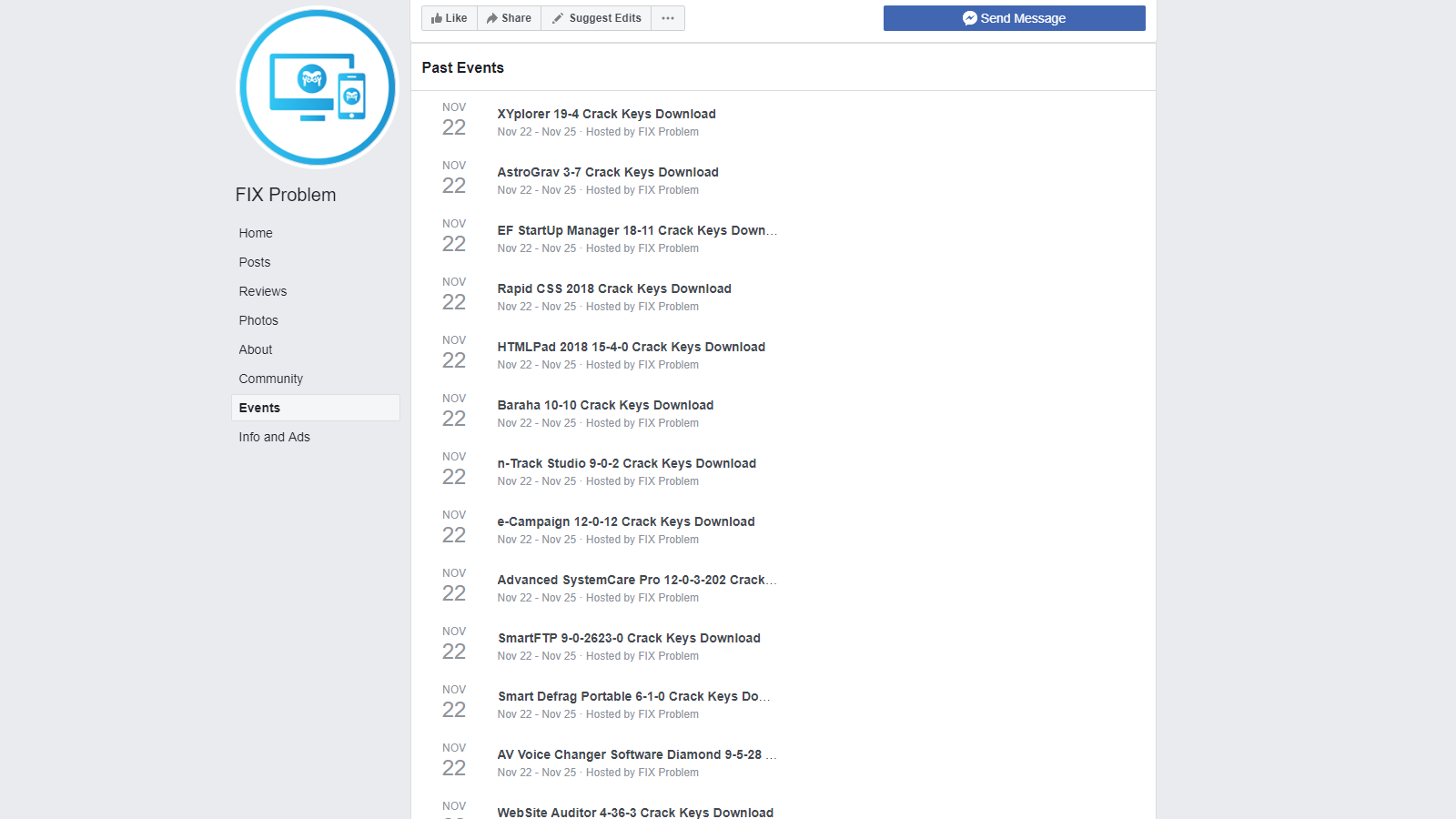
Google Groups and Facebook Events Serve as Reliable Platforms for Scammers
- Google Groups and Facebook Events filled with malware-ridden content
- Scammers taking advantage of the lack of game cracks to promote their files
- Google’s DRM circumvention reporting used by scammers as a manipulation tool now
Spreading malicious software around the globe is not a simple process, as scammers and spammers need to combine effective promotion practices, establish a reliable sharing platform, and finally ensure an adequate level of deception that will trick the user into downloading the infected files.
Recent developments have shown that Google Groups and Facebook Events are playing a pivotal role in achieving the above, as scammers are using the popular platforms to promote their malware and virus files disguised as popular game cracks. First, they lay the ground of “promotion” by pretending to be representatives of game development studios and distributors, reporting other piracy sites of DRM circumvention, leading to the corresponding URL de-listing by Google. This rank manipulation practice takes competitive sites out of the way (and out of business) and places them higher in search results, so more people who look for a game crack are reaching their sites instead.
Next, the scammers are using popular platforms to promote their content, still disguised as game cracks and file fixes. From medium.org to deviantart.com, scammers have stretched their tentacles everywhere, but it seems that the places where they can go unnoticed for the longer periods of time are Facebook and Google Groups. Accounts like “FIX Problem” have been active in Facebook for many months, with reports against it seemingly having no effect at all. The story in Google Groups has a similar character, with malware-promoting groups swarming in the platform and Google limiting their reaction to warning posts that most users will miss anyway.
Then we come to the third step which is the deception of the users who are tricked into downloading the infected files. Simply put, scammers are promoting these files as game cracks and game executable fixes, so they are addressing their malware to a very wide range of people. There is a massive demand for this type of files, especially when game crackers are finding harder and harder to offer working cracks with all the DRM protection techniques that go into these products nowadays. So, offering something that doesn’t exist anyway ensures a constant flow of traffic along your way, making it much easier to rev up those download numbers.
With these actions taking place in Google Groups and Facebook Events, it seems that the scammers enjoy an unexpected additional perk of promoting their malware on allegedly more reliable platforms. People think of tech giants as trustworthy, so their remissness and lag in dealing decisively with these scammers are actually enhancing the problem. Scamming practices will continue to evolve and change, with the situation being a complicated entanglement at this point.
Let us know where you stand on the above in the comments below, and don’t forget to visit our Facebook and Twitter pages to learn more about what’s hot in the tech world today.






